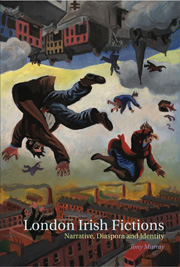Part III - The Second Generation
Summary
After a lapse of time, the past becomes a mythical country – a dreamscape. Memory is a literary exercise: it shapes our yesterdays into narrative form, an inevitably fictionalizing process.
In the British census of 2001, which for the first time allowed respondents to indicate their ‘cultural background’, only seven to eight per cent of an estimated two to two and a half million second-generation Irish people in Britain ticked the box marked ‘Irish’. Researchers have offered a number of reasons why such a small percentage of second-generation migrants were disinclined to identify themselves in this way, among them being a tendency to read the concept of ‘cultural background’ (or ethnicity) as equivalent to formal nationality. The outcome of the census illustrates just how difficult it is to quantify or categorize something as elusive as personal identity. Qualitative and ethnographic approaches appear to be better able to elicit and reflect the subtleties and nuances of cultural orientations and allegiances, and interviews conducted with second-generation Irish subjects demonstrate this. Research by Philip Ullah on schoolchildren from Irish backgrounds in London and Birmingham in the 1980s discovered that they were remarkably adroit at adapting their cultural identities to differing circumstances and had developed sophisticated approaches to negotiating conflicts of allegiance in the public and private domains. As Ullah says of his subjects, ‘the very flexibility of their identities means they can actually respond to competing situational demands when such a response is required. They are not doomed to remain on the boundaries of two cultures but are able to take an active part in both’.
- Type
- Chapter
- Information
- London Irish FictionsNarrative, Diaspora and Identity, pp. 149 - 153Publisher: Liverpool University PressPrint publication year: 2012



